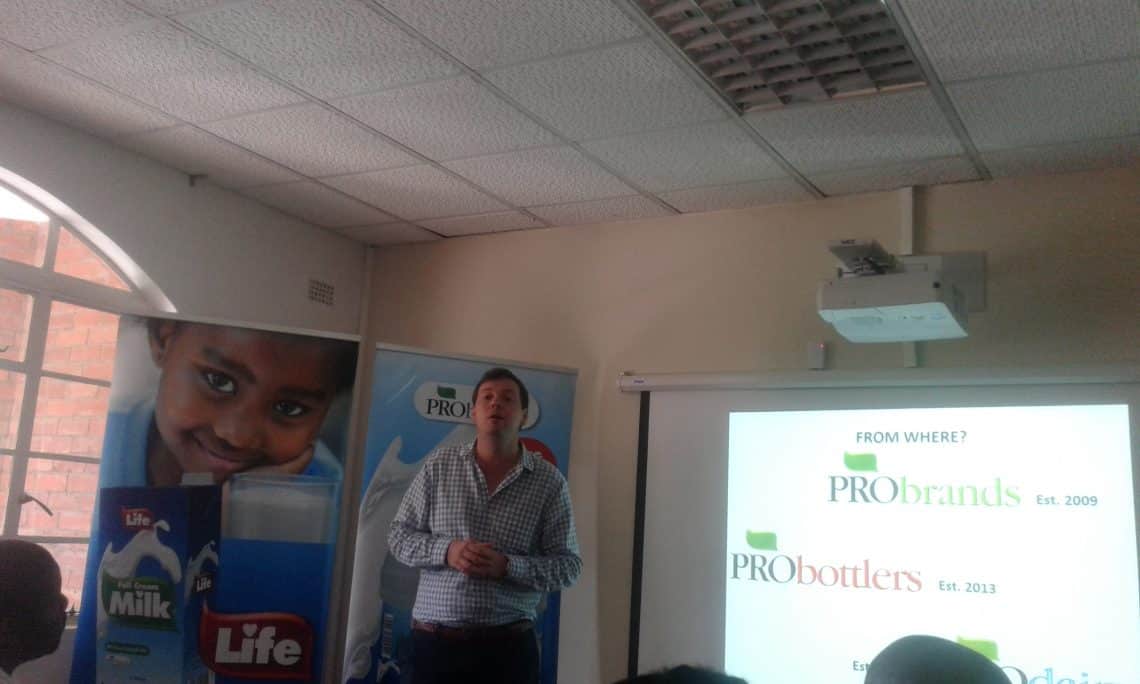ProDairy, a new dairy company within ProBrands has imported 600 heifers from South Africa, bought irrigation equipment and feed from the invested US$6 million in pursuit of meeting the national milk demand.
The heifers that will come in batches of 100 within the next month will help boost the national milk demand currently at 10 million liters per month. The country is currently facing milk shortages and ProDairy wants to cover that shortage.
The national supply (that is the milk which is going into processing) is 5 million liters per month, creating a huge deficit that leaves dairy companies to import the other half through imports.
Calum Philp, the Managing Director of ProDairy said the company faced foreign currency shortages like any other business in the country.
“While in most cases companies cry over the scarce foreign currency some of us in dairy business have a huge gap in the national supply of milk.
“So what we have done with the gap is that we have done the backward integration where we don’t import milk but instead we import heifers which will produce milk to close the gap. At least each heifer will save at least US$210 of the foreign currency,” Philp said.
The Probrands Managing Director said the 400 heifers was the largest import of cows by a private company aimed at closing the gap by 5 percent.
“The biggest cost of producing milk is feed so we have also started Mafuro Farm whereby we are looking at growing our pastures for the heifers which are currently in quarantine in Port Elizabeth.
“New Zealand milk imports find their way here because it’s cheap and they have the best pastures,” Philp said.
Philp said Probrands was fully aware of the current demands for milk and the need to survive in the harsh economic environment of Zimbabwe
“Firstly, you got to have a strong balance sheet. Secondly and most importantly is that we built our business on today’s demands. When we came around in 2009 there were no products on the shelves and we made our presence felt because our brands were available on the shelves,” Philp said.






